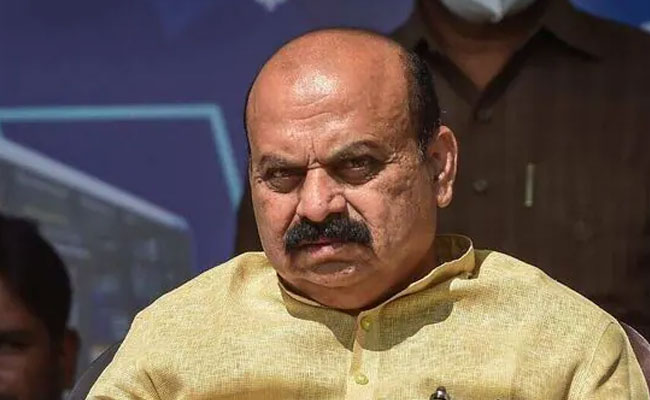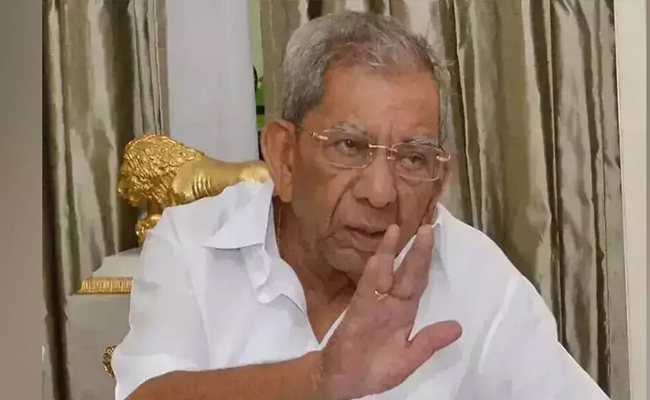Bengaluru(PTI): BJP leader Basavaraj Bommai on Saturday accused the Congress government and some contractors of "jointly looting the state" and demanded an ED and CBI probe into the "illegal money" recovered during Income Tax department searches.
The former chief minister, whose government was accused by contractors of collecting 40 per cent commission from them, now labelled the contractors' association the Congress government's "commission collection centre".
IT officials have conducted searches at properties belonging to some contractors where they reportedly recovered a huge cache of money stashed in several boxes at properties linked to a city-based contractor, sources said.
Referring to the seizure, Bommai alleged that there has been corruption in everything including transfers of officials since the new government came to power. He accused the Congress dispensation of looting Karnataka in order to become an "ATM for the Congress party" allegedly to fund upcoming elections in five states.
"This is the most corrupt government that Karnataka has seen," Bommai claimed. "Corruption is seen from village till Vidhana Soudha, and it has been going on openly."
Speaking about the cash seizure, he said, "It is for the first time that a huge amount of money has been recovered from the house linked to a contractor, soon after the release of the pending bill money to the contractors."
He claimed, "This has proved beyond doubt that the government received a 10 per cent commission for clearing bills. More commission money would come out if the raids were conducted on some more contractors."
Speaking to reporters here, he alleged that the Contractors' Association had made baseless allegations against the previous BJP government and that the same association is now working as the "government's commission collection centre".
"There is a contractors' lobby functioning...some contractors and the government were jointly looting the state," he claimed, adding, "The recent recovery of money must be probed by the ED under the Money Laundering Act, and under Prevention of Corruption Act by the CBI."
He further said that if the chief minister had no role in this, then he must refer the case to the Lokayukta or to the Justice Nagmohan Das commission constituted by Siddaramaiah himself, which is probing the charge that the previous BJP government collected 40 per cent commission from contractors.
Accusing the state Congress leaders of "acting like the ATM" for the upcoming assembly polls in five states, he said they have no moral right to talk about corruption. "State Contractors' Association President Kempanna has met CM Siddaramaiah alleging that selective payment (of dues for works done by contractors) had been made. This itself is an evidence to prove that the bills of contractors who have paid commission have been released," Bommai claimed
Let the Truth be known. If you read VB and like VB, please be a VB Supporter and Help us deliver the Truth to one and all.
Bengaluru (PTI): Veteran Congress leader Shamanuru Shivashankarappa passed away at a private hospital here on Sunday due to age-related ailments, official sources said.
He was 95 and represented the Davanagere South Assembly constituency. He had been undergoing treatment at the hospital for some time.
Shivashankarappa is survived by three sons, including S S Mallikarjun, Karnataka Minister for Mines and Geology and Horticulture, and four daughters.
His daughter-in-law, Prabha Mallikarjun, is the Member of Parliament from Davanagere.
A former minister, Shivashankarappa, served as treasurer of the Karnataka Pradesh Congress Committee (KPCC) for several decades and was the president of the All India Veerashaiva Mahasabha, the apex body of the influential Veerashaiva-Lingayat community.
He was also a noted educationist who established several educational institutions and was an industrialist.





